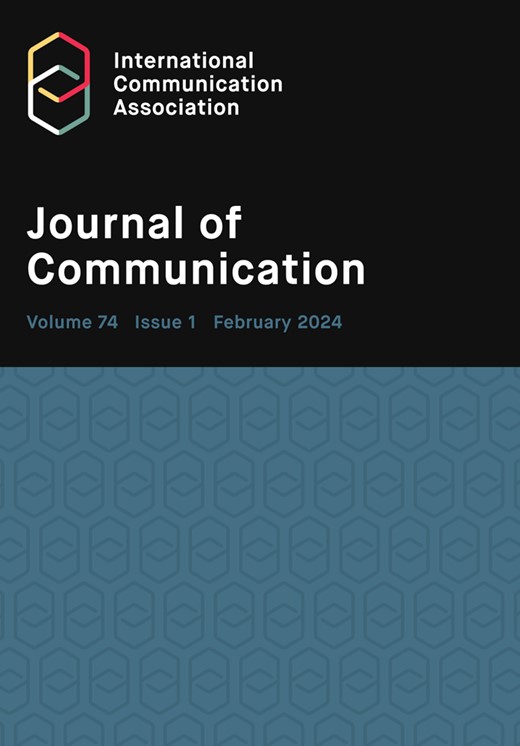The Influence of Environmental Reporting on Policy Making
IF 6.1
1区 文学
Q1 COMMUNICATION
引用次数: 0
Abstract
Purpose: The main objective of this study was to explore the influence of environmental reporting on policy making. Methodology: The study adopted a desktop research methodology. Desk research refers to secondary data or that which can be collected without fieldwork. Desk research is basically involved in collecting data from existing resources hence it is often considered a low cost technique as compared to field research, as the main cost is involved in executive’s time, telephone charges and directories. Thus, the study relied on already published studies, reports and statistics. This secondary data was easily accessed through the online journals and library. Findings: The findings revealed that there exists a contextual and methodological gap relating to the influence of environmental reporting on policy making. Preliminary empirical review revealed the significant impact that environmental reporting, whether through traditional media or digital platforms, can have on the policy-making process. These studies have shown that the media's framing of environmental issues, its emphasis on urgency and consequences, and its ability to mobilize public opinion can shape the policy agenda, influence decision-makers, and lead to policy changes. Moreover, the role of environmental non-governmental organizations (NGOs) and social movements in leveraging media strategies to advocate for policy change cannot be understated. Environmental NGOs strategically use media campaigns to raise awareness, pressure policymakers, and drive environmental policy initiatives. Unique Contribution to Theory. Practice and Policy: The Agenda- Setting theory, Diffusion of Innovations theory and the Framing theory may be used to anchor future studies on environmental reporting. Based on the study, the following recommendations emerge: Foster closer collaboration between media and policymakers to enhance communication and understanding, invest in media training programs and establish reporting standards to improve the quality of environmental reporting, promote transparency and accountability in both media reporting and policymaking processes, encourage diverse and inclusive environmental reporting that represents all perspectives and communities, and embrace cross-platform and digital reporting strategies to enhance the reach and impact of environmental journalism in an evolving media landscape.环境报告对决策的影响
目的:本研究的主要目的是探讨环境报告对决策的影响。研究方法:本研究采用案头研究方法。案头研究指的是二手数据或无需实地考察即可收集的数据。案头研究基本上是从现有资源中收集数据,因此与实地研究相比,案头研究通常被认为是一种低成本技术,因为主要成本涉及行政人员的时间、电话费和目录。因此,本研究依赖于已出版的研究、报告和统计数据。这些二手数据可通过在线期刊和图书馆轻松获取。研究结果研究结果表明,在环境报告对政策制定的影响方面存在背景和方法上的差距。初步实证审查显示,无论是通过传统媒体还是数字平台进行的环境报道,都会对政策制定过程产生重大影响。这些研究表明,媒体对环境问题的构思、对紧迫性和后果的强调以及其动员公众舆论的能力,都可以影响政策议程、影响决策者并导致政策变化。此外,非政府环保组织(NGOs)和社会运动在利用媒体策略倡导政策变革方面的作用也不容低估。非政府环保组织战略性地利用媒体活动来提高意识、向决策者施压并推动环境政策倡议。对理论、实践和政策的独特贡献实践与政策:议程设置理论、创新扩散理论和框架理论可用于今后有关环境报道的研究。根据这项研究,我们提出了以下建议:促进媒体与政策制定者之间更密切的合作,以加强沟通和理解;投资于媒体培训项目并建立报道标准,以提高环境报道的质量;促进媒体报道和政策制定过程的透明度和问责制;鼓励代表所有观点和社区的多样化和包容性的环境报道;采用跨平台和数字报道策略,以在不断变化的媒体环境中提高环境新闻的覆盖面和影响力。
本文章由计算机程序翻译,如有差异,请以英文原文为准。
求助全文
约1分钟内获得全文
求助全文
来源期刊

Journal of Communication
COMMUNICATION-
CiteScore
11.60
自引率
5.10%
发文量
41
期刊介绍:
The Journal of Communication, the flagship journal of the International Communication Association, is a vital publication for communication specialists and policymakers alike. Focusing on communication research, practice, policy, and theory, it delivers the latest and most significant findings in communication studies. The journal also includes an extensive book review section and symposia of selected studies on current issues. JoC publishes top-quality scholarship on all aspects of communication, with a particular interest in research that transcends disciplinary and sub-field boundaries.
 求助内容:
求助内容: 应助结果提醒方式:
应助结果提醒方式:


